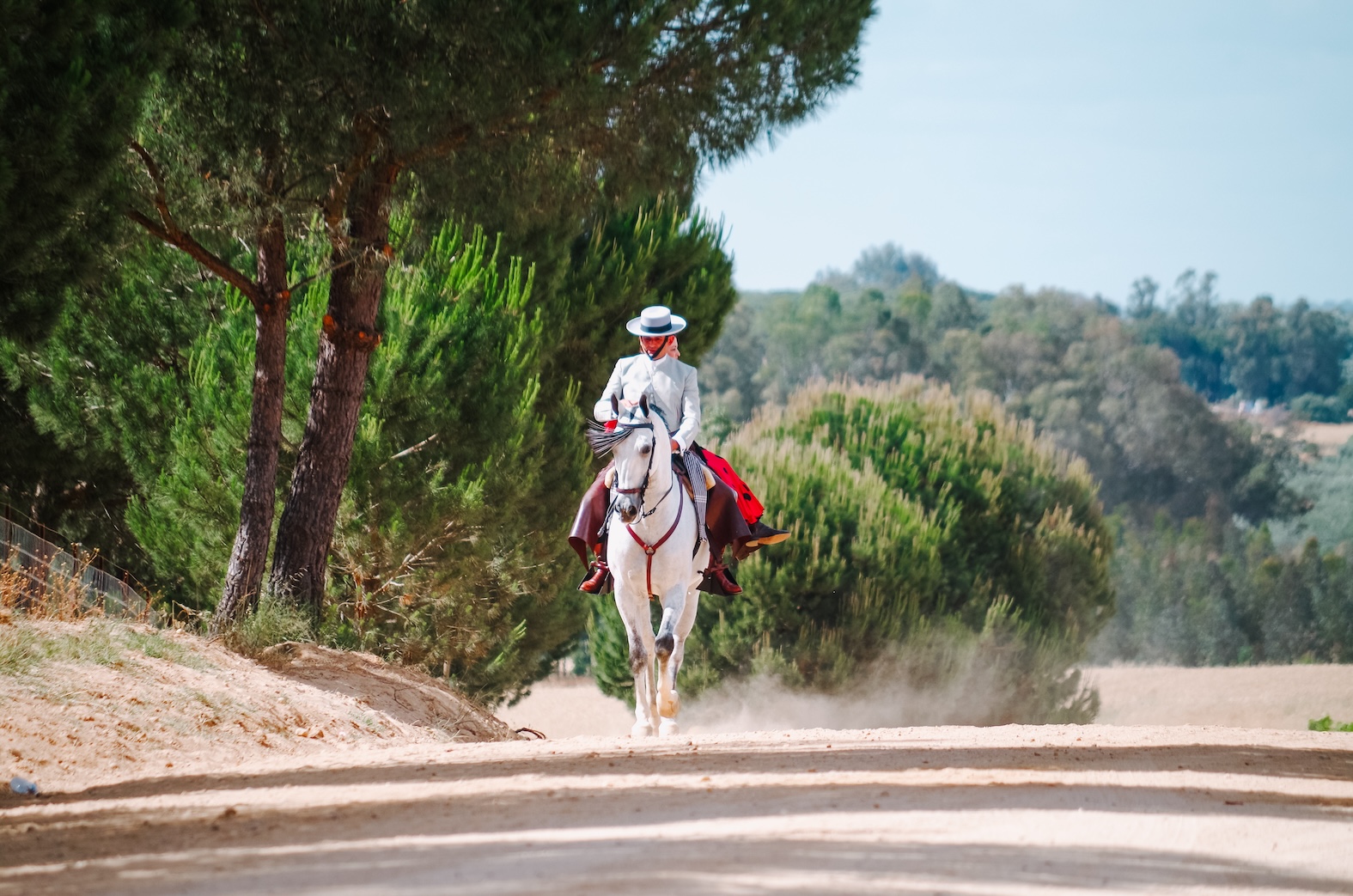Wild camping is not allowed in Spain.
A lot of people wonder, if wild camping is legal in Spain. We first must realise the difference between parking and camping. It’s important to park in designated parking areas and avoid setting up camp outside of designated camping areas.
While it’s not legal to park in non-camping areas and set up awnings and chairs, spending the night in your vehicle is allowed. This means that you can enjoy the beautiful outdoors of the Spanish countryside and get a good night’s sleep without breaking any laws. So, go ahead and explore, take in the sights and sounds of nature while making sure that you comply with all the guidelines.

Spain is divided into 17 autonomous communities, each with its own regulations regarding road traffic. It’s a bit confusing since the Ministry of the Interior and DGT can have power over road traffic at the state level, while the autonomous communities can set their own laws and restrictions. But don’t worry, we’ve got you covered! To prevent any misunderstandings, the Ministry of the Interior approved Instruction/Directive 08/V-74 DGT in 2008, which contains essential information about campers and the difference between parking and camping. By taking a look at these distinctions, you’ll easily avoid any potential issues or sanctions.
PARKING or Camping?
Parking and camping are two different things.
- Parking is just parking; no one plans to live in the vehicle.
- Camping is when you set up a temporary shelter and intend to stay awhile. Of course, both activities need their own space.
The motorhome / van is parked (aparcado, esctacionado) when it only contacts the ground through its wheels, without using stabilizer legs. Use levelling blocks if needed, noting that levelers (used to level the vehicle) constitute camping while blocks (used only to prevent the car from rolling,) are just parking.
If your vehicle weighs over 3.5 tons, do not use stones or substitute items. There should be no protruding elements beyond the vehicle’s perimeter, e.g., awning, windows, doors, tables or chairs. Passengers can sleep inside while adhering to these rules but should note that they cannot have any part of the vehicle outside of its perimeter. For example, if you have a window that slides you can have it open, if yours opens to the outside of the van – officially not, because that would mean you are camping, not just parking.
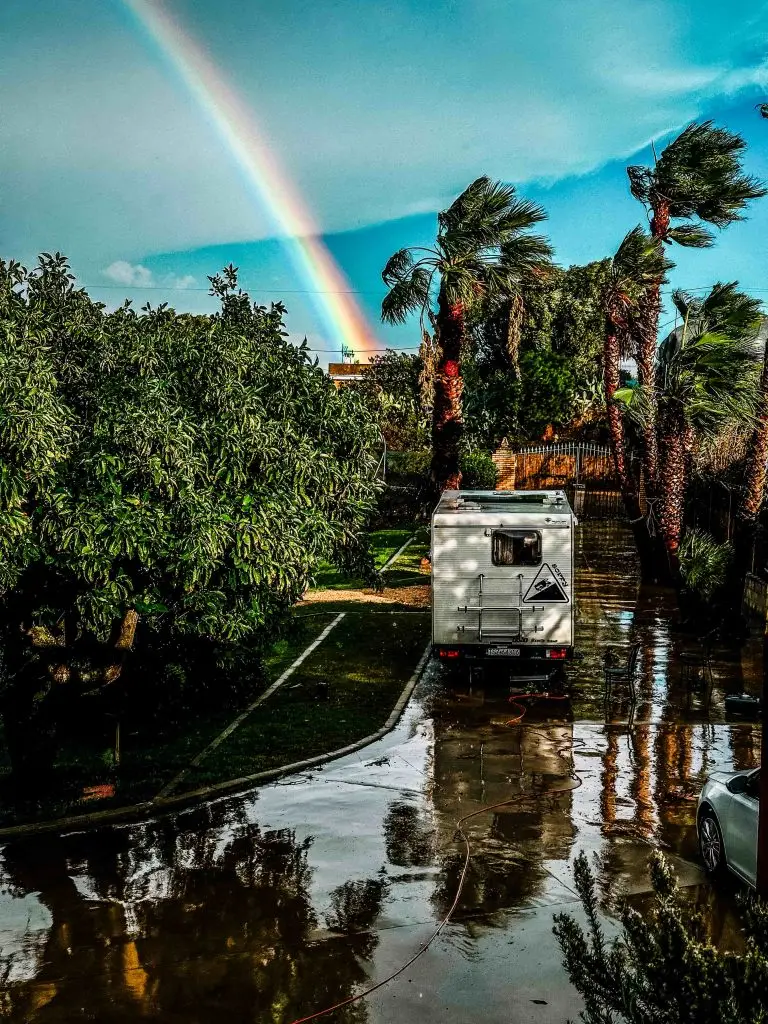
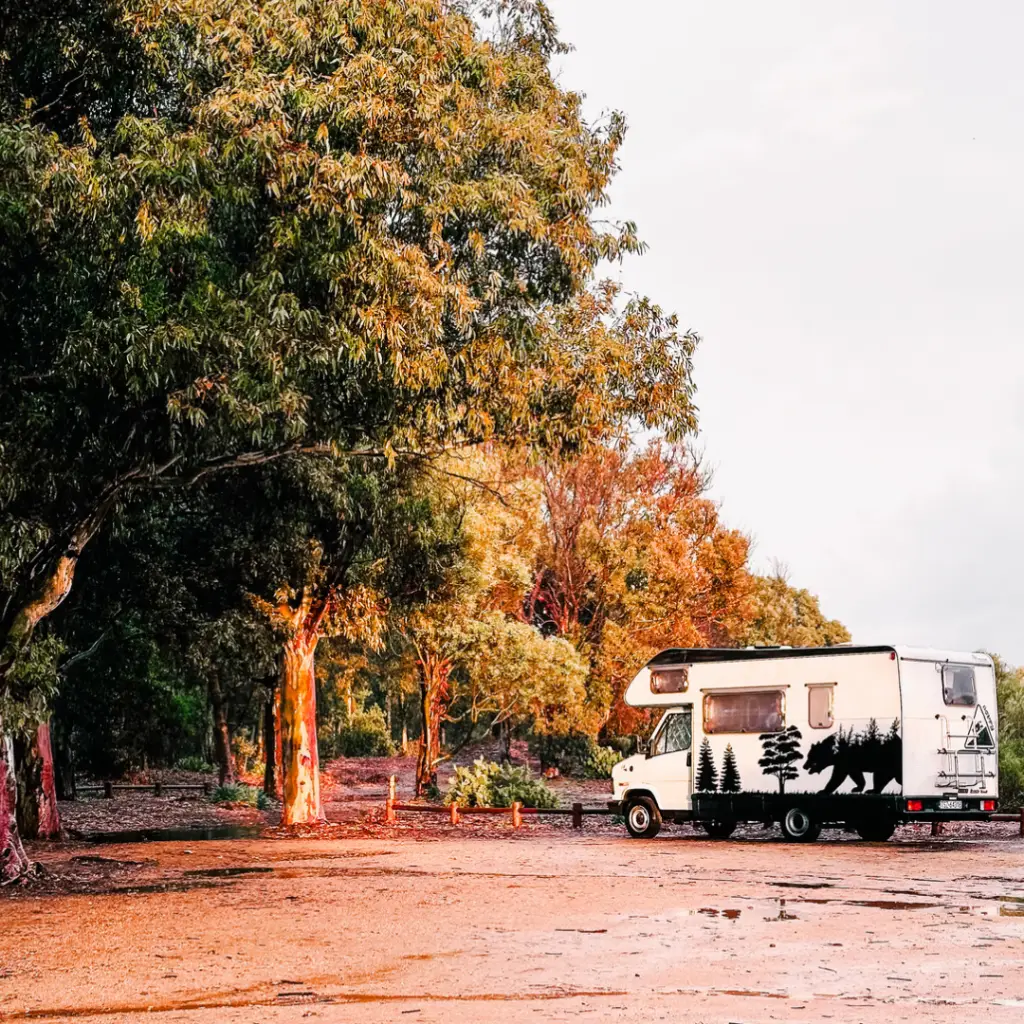
CAMPING
When a motorhome does one (or more) of the following:
- has stabilizer legs,
- elements extending beyond the vehicle’s perimeter,
- emits loud and annoying noises,
- releases liquids
It is considered “camping“, and authorities may require residents to go to a camping site.
According to article 46.1 of the ordinance of July 28, 1996, illegal camping can relate not only to motorhomes. For instance, it is not allowed to have more than three tents or caravans together at a distance of less than 500 meters, and the number of campers cannot exceed ten, nor can they stay at one location for longer than three days. However, if the motorhome is well parked and not causing any disruptions, we won’t be fined or face other legal consequences for improper parking.
When it comes to caravans, to be parked they must be attached to the vehicle which means you cannot sleep inside. We can sleep when the trailer is detached and placed on stabilizer legs. The towing hooks are not intended for this purpose. Therefore there’s officially no option to stay overnight in a caravan because it will be considered camping straight away.
ROAD SIGNS
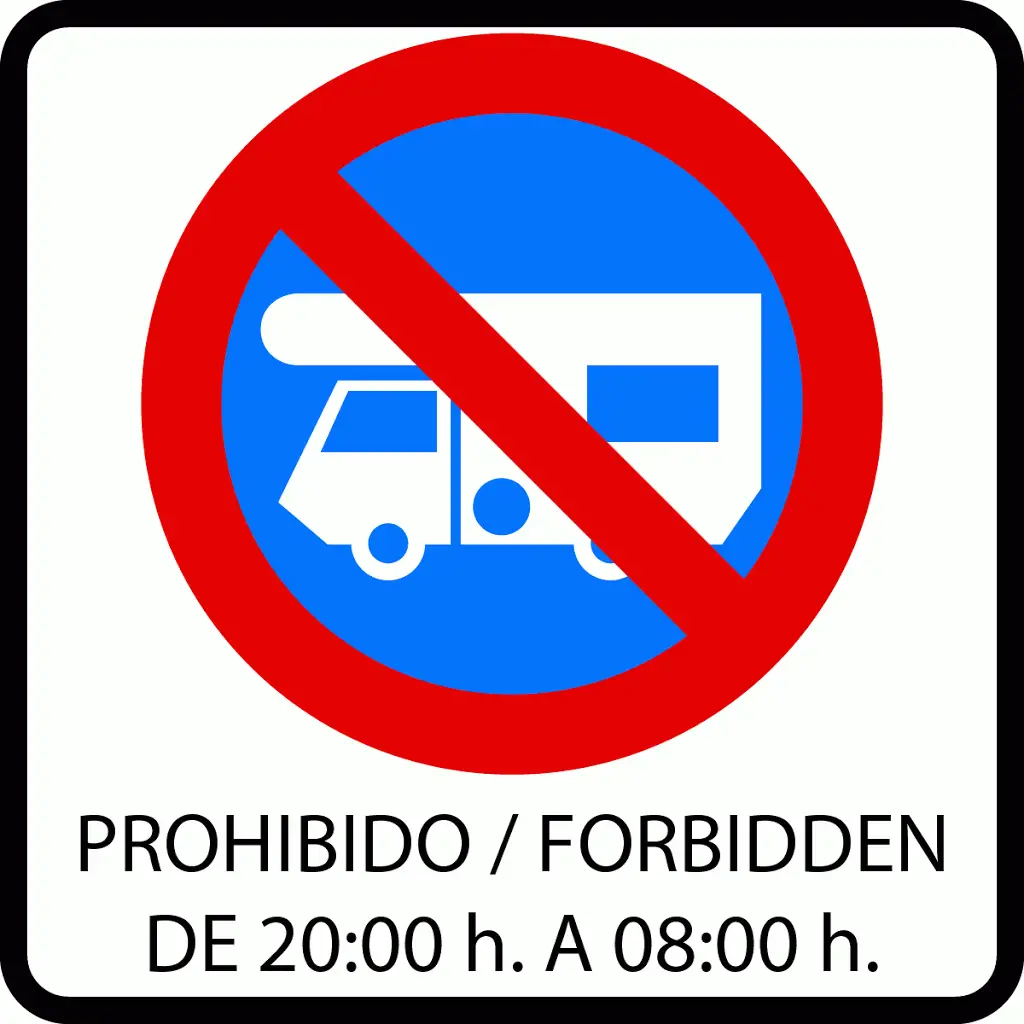
Local authorities in Spain sometimes use illegal road signs, even though it is a violation of national law. Camper vans are permitted to park under the same conditions as any other vehicle.
The point is, of course, any sign which concerns only motorhomes (but not other vehicles with similar dimensions but with a different function) is discriminatory. This means that the sign on the right cannot be used. It is like prohibiting the entry or parking of green cars or a specific brand. If you do get a ticket, you can try to appeal.
The sign on top, on the right side also contradicts the rules for the same reasons as the previous one. Unfortunately, there are municipalities that have this sign installed at the entrance to the municipality, we have the right to complain on grounds of discrimination.
The two signs below inform us that camping is prohibited. The first one is completely legal, it actually just reminds us that camping is generally prohibited in Spain (in the wild). The second sign is misleading as it suggests that the presence of a motorhome or caravan is generally prohibited.
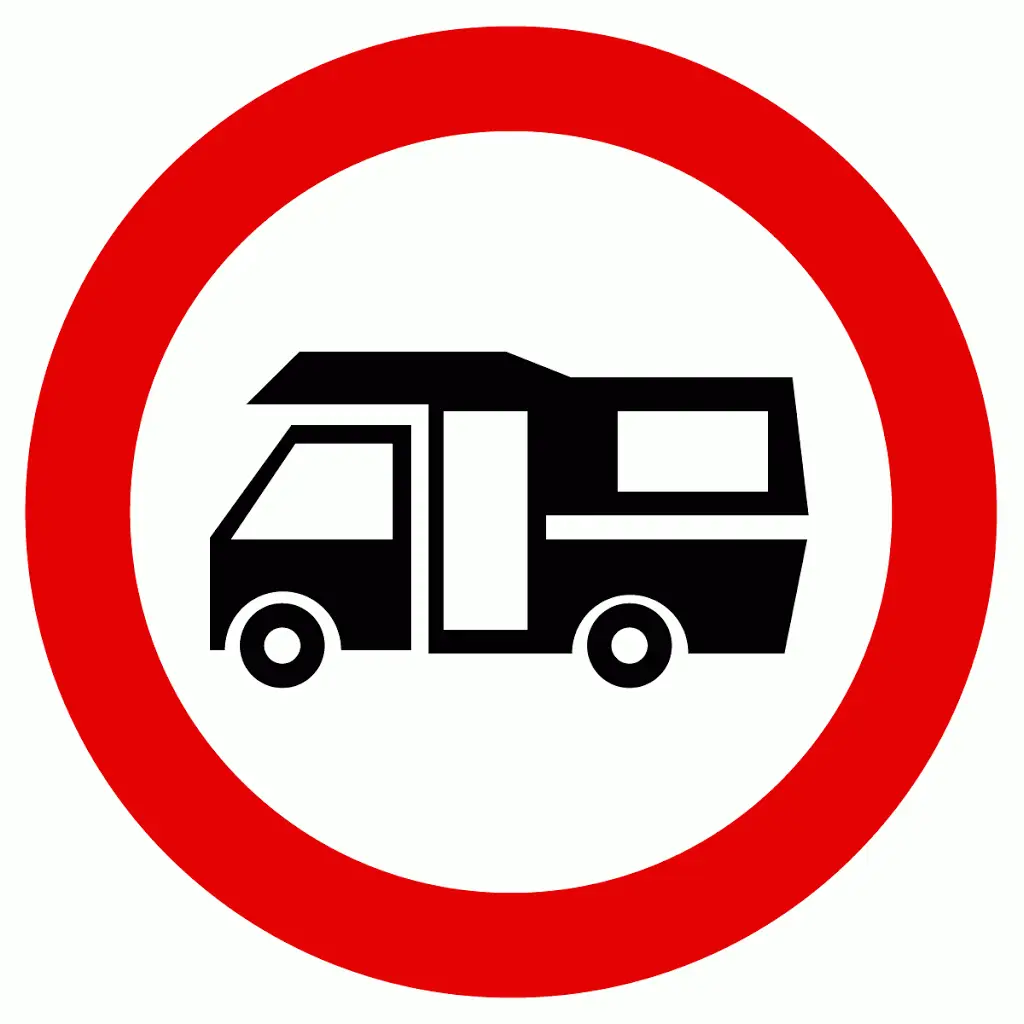
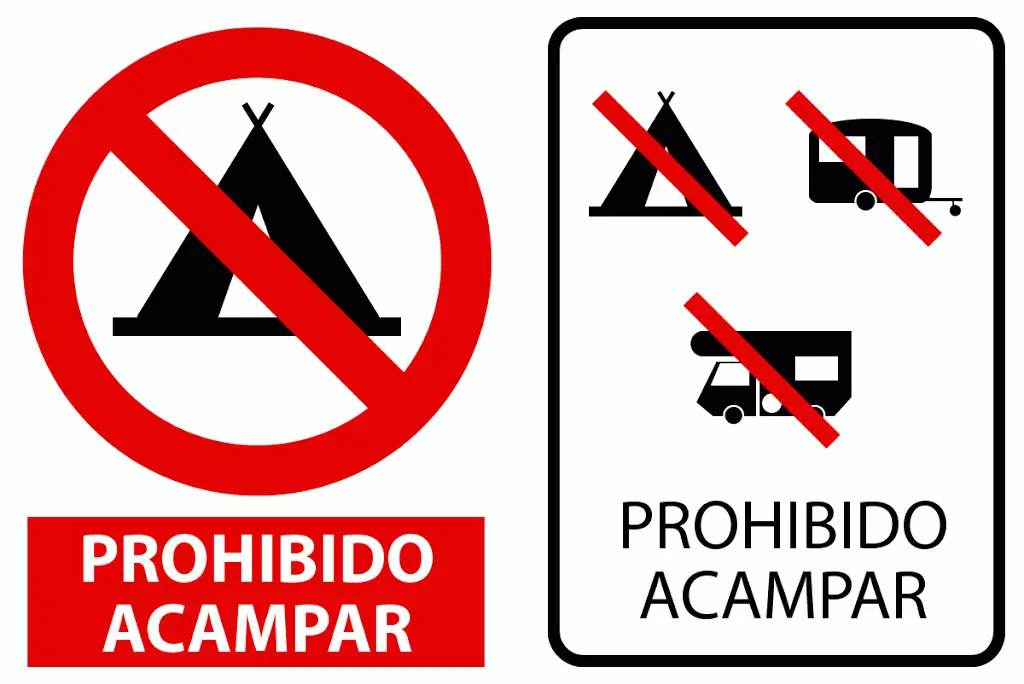
If you encounter any issues despite complying with the aforementioned guidelines:
- always be polite
- follow all the rules and laws
- make sure your car is legit and your car documents can prove
- have all the necessary documents with you
- just in case, carry the printed law with you, which you can show
- politely explain that you comply with all standards (use printed directives if necessary)
- say that the motorhome has equal driving and parking rights as any other vehicle.
- promise that if you want to camp, you will move to a place intended for it, it’s discriminatory to punish based on presumption of wrongdoing
I have a lot of experience with wild camping in Spain and there just few more things I wanted to share to summarise the article:
- if you come across a very stubborn officer, it always better just to let go and change place
- vans are not camper vans, and from my experience they are treated differently by the authorities and it is easier to park it anywhere without arousing negative emotions and attracting the attention
- even if you disregard the above mentioned rules and laws, that doesn’t mean you will directly be fined, especially in low season – Spain is definitely a camper van friendly place
- this article is only about Spain, here you can read about Portugal
- after the pandemic, in some, busier and more touristic parts of Spain, the authorities became more strict

